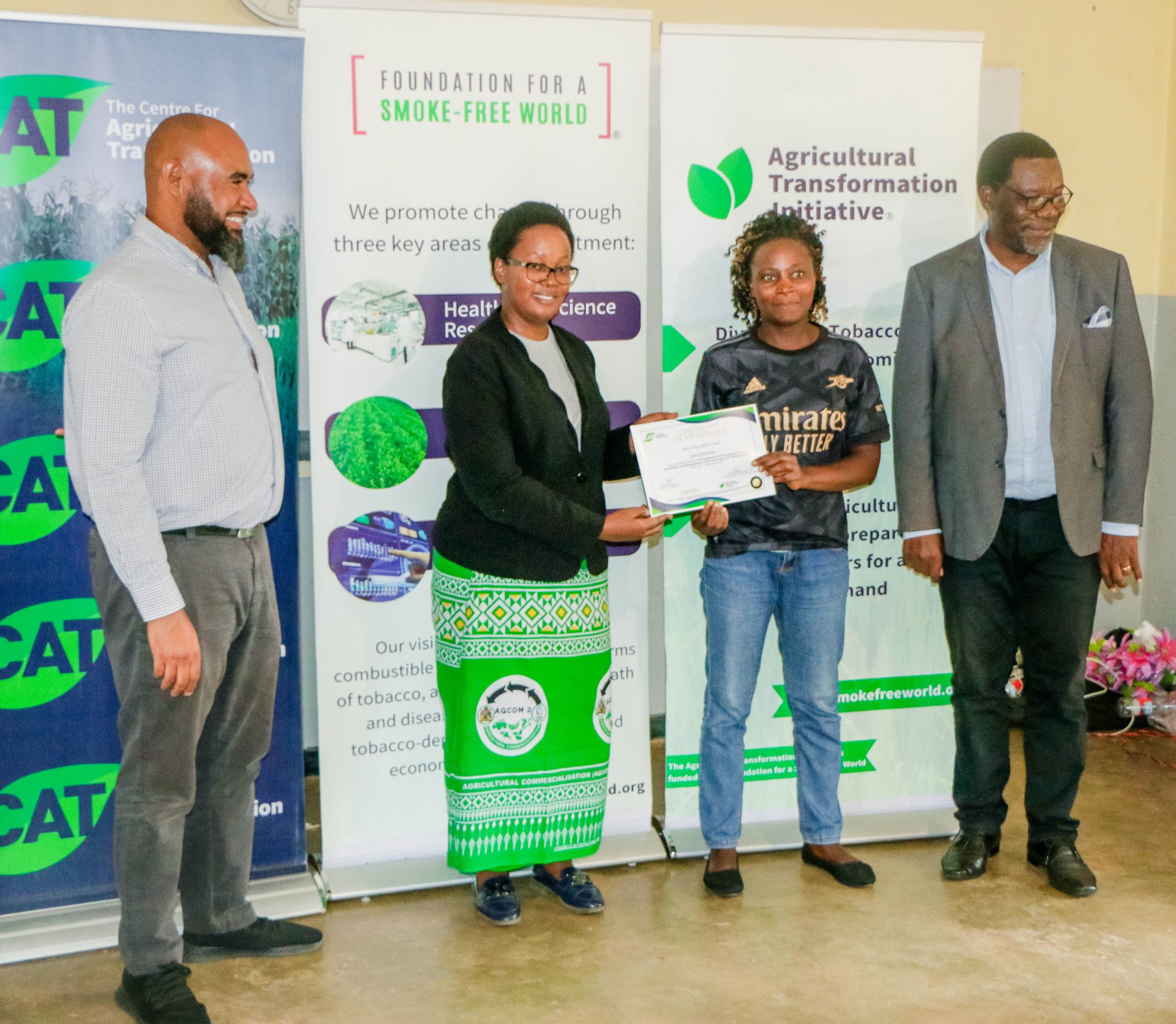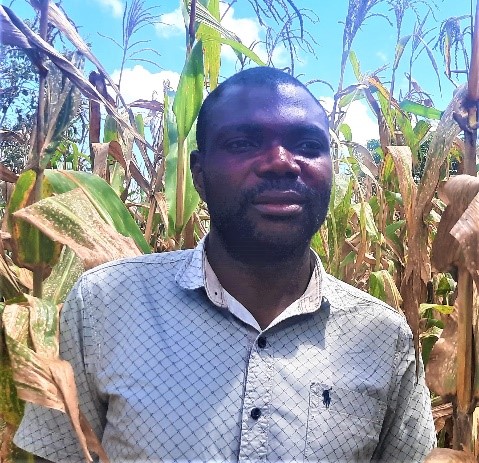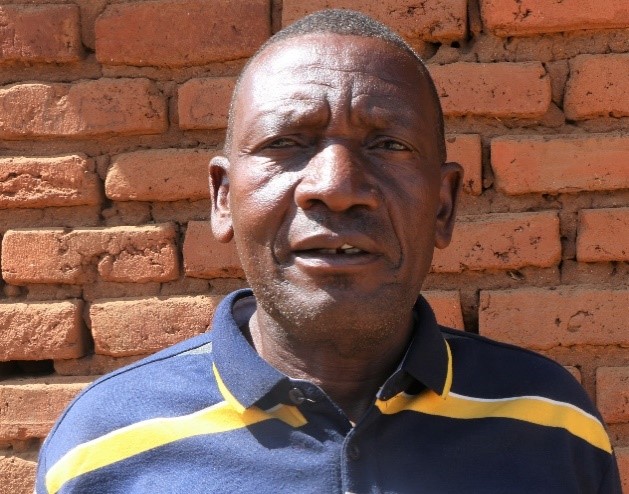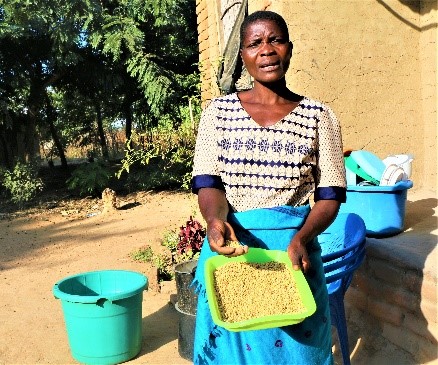
Bridging Research and Practice: The Case for Prioritizing Higher Education Institutions as Development Partners
March 12, 2024
CAT Trains Smallholder Farmers on Post-Harvest Management, Financial Literacy and Market Access
April 20, 2024The demand for composted manure, commonly called Vuna Compost, has exponentially increased among the 1,000 smallholder farmers who have been supported by the Centre for Agricultural Transformation (CAT).
CAT has promoted the use of Vuna Compost through awareness messages, so much so that Green Ventures Limited, producers of the manure, fell short of supplying 460 50 kilogram bags during the 2022 to 2023 growing season.
The organization only managed to supply 700 bags of manure weighing 50 kilograms each (kgs) to 274 farmers from some parts of Mzimba and Nkhatabay districts within the three agricultural extension areas where it operates.

“We are promoting use of Vuna compost manure among farmers so that they can reduce the cost of inorganic fertilizers and better support the improvement of soils. We did not know that by doing this, the demand would outpace our production capacity,” said Marko Chiumia, Managing Director of Green Ventures Limited.
Since 2020, Green Ventures Limited has been supported by the CAT with funding from the Foundation for a Smoke-Free World through its affiliate the Agricultural Transformation Initiative (ATI).
Initially, Green Ventures Limited started working with five smallholder farmers in 2018, then 56 farmers in 2020, and currently is working with 1,000 smallholder farmers following support from CAT.
Chiumia said farmers that applied Vuna compost manure have seen an increase of about 27 percent in maize harvest, while those growing tomato and leafy vegetables saw a 44 percent increase in production.
“For maize farmers, the income increment has been attributed to both increase in yield as a result of Vuna compost application and local market prices. Those growing tomato and leafy vegetables have registered an increase of about 35 percent due to use of Vuna compost manure,” he said, adding that the Vuna compost manure helps farmers reduce fertilizer cost by an average of 47 percent per acre.
According to Chiumia, CAT’s support has enabled Green Ventures Limited reach out to the targeted farmers in their groups with Vuna compost manure messages, including hosting training sessions on the process for making Vuna compost and awareness creation on its application.
The trainings have also focused on how to use compost manure and good agricultural practices, such as soil and water conservation methods, as well as post-harvest management practices that help farmers boost their productivity.
“On average, we have seen each farmer buying four 50 kilogram bags of Vuna compost manure and mixing it with inorganic fertilizers. This is the message we are giving them – that they shouldn’t use 100 percent Vuna compost on their fields; they need to move gradually to sustain better soil management. For one acre of maize, they would need eight 50 kilogram (kg) bags of Vuna alone,” said Chiumia.

Jane Chisi, 52, from Jalanthowa 1 Village in Traditional Authority (T/A) Mtwalo, is one of the smallholder farmers that have benefitted from Vuna compost manure use, harvesting 35 maize bags of 50 kgs each on two acres of land after applying the manure. Previously, she only yielded six 50 kg bags without any manure or fertilizers on the same land.
Another lead farmer, 47-year-old Elifa Mwaungulu from Yotamu Mtegha Village, celebrated the impact of the Vuna compost manure after increasing her yields during the two years she has been applying it to her maize field.
She now has a demonstration plot, which she uses to impart messages on the use of Vuna compost to 63 smallholder farmers under her supervision as a lead farmer. “In the 2022 to 2023 growing season, a lot of farmers failed to access Vuna fertilizer [manure], yet people were looking for it. People were comparing the prices of Vuna manure with chemical fertilizers in shops and found Vuna manure to be cheaper,” testified Elifa, who bought four 50 kg bags of the manure.
According to an impact survey conducted by the CAT on smallholder farmers it has supported through its partners, 46,935 beneficiaries have been reached, yield production per farmer has increased at 38 percent average, with an average of 89 percent of farmers reporting an increase in revenue, while technology adoption rate has increased by 83 percent.
CAT Executive Director, Macleod Nkhoma, has attributed the successes to strong partnerships with various agribusiness stakeholders, private sector, academic, and government institutions. “These partnerships are crucial in helping smallholder farmers increase production and incomes,” he says.




